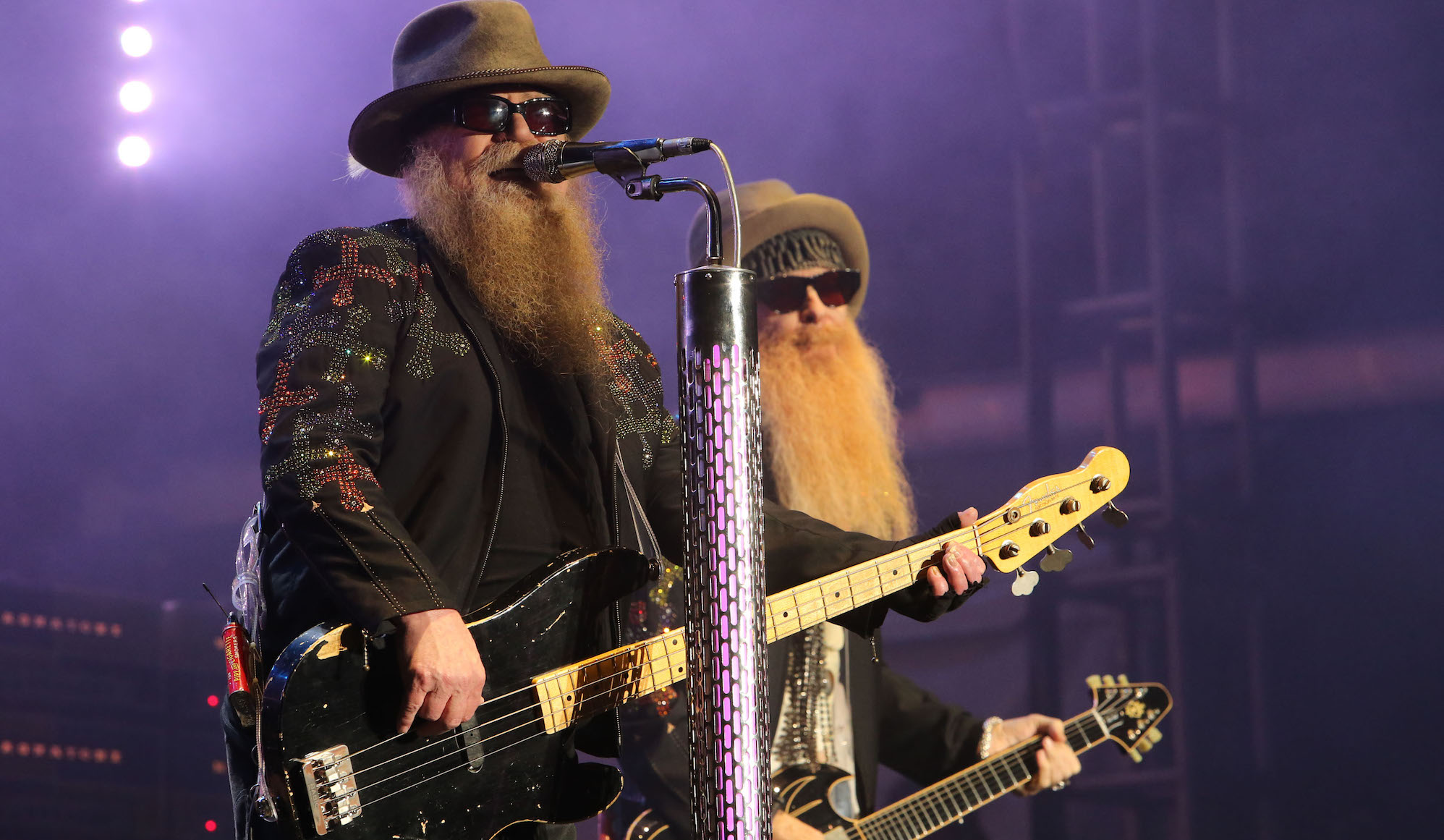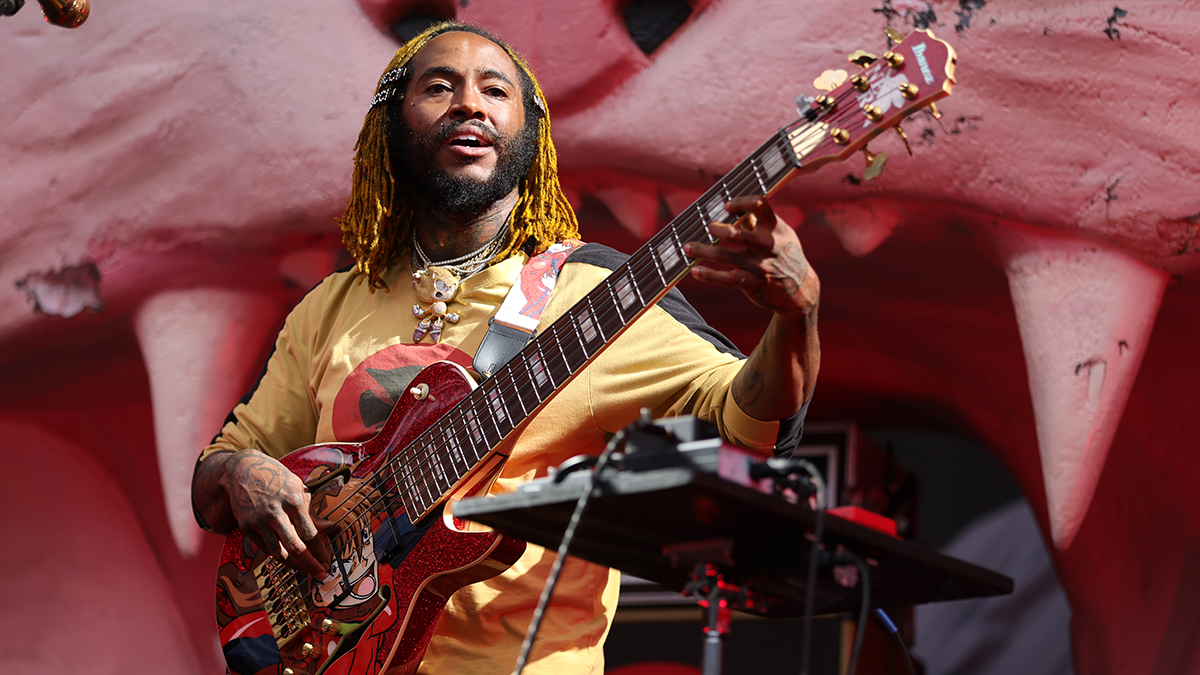Dusty Hill, ZZ Top bassist, dies at 72
The legendary bass player died in his sleep at his home in Houston, Texas, the band wrote on social media

All the latest guitar news, interviews, lessons, reviews, deals and more, direct to your inbox!
You are now subscribed
Your newsletter sign-up was successful
Dusty Hill, the longtime bassist for Texas blues-rock stalwarts ZZ Top, has died at the age of 72, the band announced today.
"We are saddened by the news today that our Compadre, Dusty Hill, has passed away in his sleep at home in Houston, Texas," the band's surviving members – Billy Gibbons and Frank Beard – wrote on social media.
"We, along with legions of ZZ Top fans around the world, will miss your steadfast presence, your good nature and enduring commitment to providing that monumental bottom to the ‘Top'. We will forever be connected to that 'Blues Shuffle in C.'”
No cause of death was revealed in the band's statement.
Famous for his long beard (something he proudly sported along with Gibbons) and punchy low-end work, Hill performed with ZZ Top for over 50 years, starting in 1969. Aside from the band's very first single, he played on each and every one of the band's releases, from the band's First Album in 1971 to La Futura in 2012.
With Gibbons and drummer Frank Beard (ironically the one member of the trio who didn't sport a long beard), Hill helped ZZ Top perfect a uniquely Texan blend of blues, boogie and – later in the band's career – new wave. Retaining the same lineup for over 50 years, the band sold 50 million albums and became one of rock's most consistently popular touring attractions.
Born in Dallas in 1949, Hill first picked up the bass as a teenager and by the age of 20 was a veteran of the nascent Dallas blues/rock scene. Upon his move to Houston in 1969, he joined up with Gibbons and Beard in ZZ Top, who had just signed a deal with London Records.
All the latest guitar news, interviews, lessons, reviews, deals and more, direct to your inbox!
After their first two albums failed to make much of a dent, the band cut Tres Hombres in 1973. Led by the infectious La Grange – which, with its boogie rhythms, attitude-laden blues licks, grooving bass line and innuendo-filled lyrics, set the template for the band's sound – the album made the band stars.
After a three-year break between 1976 and 1979 (during which Gibbons and Hill grew their trademark beards), the band returned with Degüello, a success that they followed up with 1983's Eliminator, a hit single-filled smash that made the trio superstars on rock radio and MTV.
Though the band's sound and success ebbed and flowed, Hill's steady, quiet presence and impeccable four-string skills remained a constant, affording the band a stability enjoyed by few of their peers.
Hill had endured hip replacement and shoulder surgeries in recent years, and, earlier this month, missed his first ZZ Top gig in over 50 years due to what the band said were hip problems. His place was filled by the band's longtime guitar tech, Elwood Francis.
“It’s a cliché and sounds so simplistic, but it’s down to the three of us genuinely enjoying playing together,” Hill said to Classic Rock about the trio's longevity in 2010.
“We still love it, and we still get a kick out of being on stage. We also have enough in common to maintain a bond between us but sufficient differences to keep our individuality. And after all this time, we all know what winds up the others and what makes them the people they are.”
Jackson is an Associate Editor at GuitarWorld.com. He’s been writing and editing stories about new gear, technique and guitar-driven music both old and new since 2014, and has also written extensively on the same topics for Guitar Player. Elsewhere, his album reviews and essays have appeared in Louder and Unrecorded. Though open to music of all kinds, his greatest love has always been indie, and everything that falls under its massive umbrella. To that end, you can find him on Twitter crowing about whatever great new guitar band you need to drop everything to hear right now.

